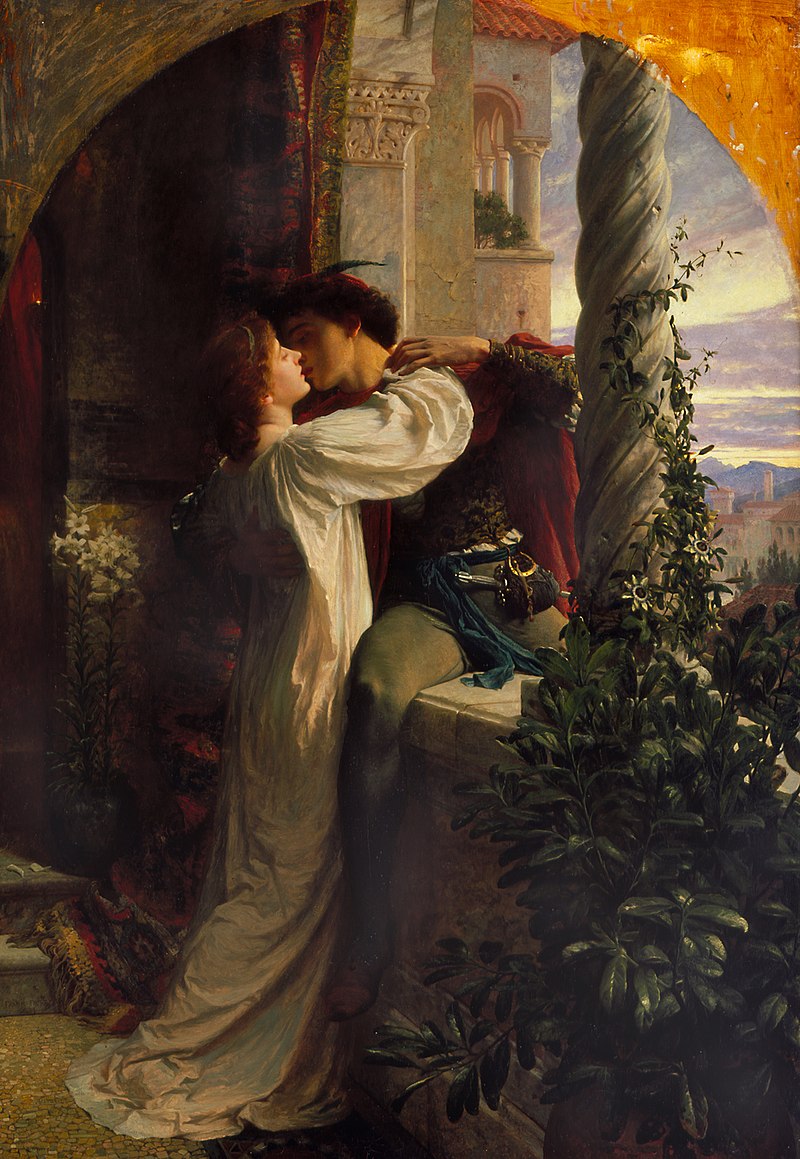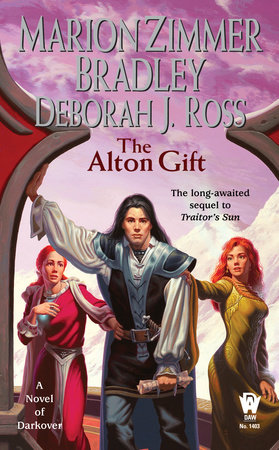 Crossing genres is hot business these days: science fiction mysteries, paranormal romance, romantic thrillers, Jane Austen with horror, steampunk love stories, you name it. A certain amount of this mixing-and-matching is marketing. Publishers are always looking for something that is both new and “just like the last bestseller.” An easy way to do this is to take standard elements from successful genres and combine them.
Crossing genres is hot business these days: science fiction mysteries, paranormal romance, romantic thrillers, Jane Austen with horror, steampunk love stories, you name it. A certain amount of this mixing-and-matching is marketing. Publishers are always looking for something that is both new and “just like the last bestseller.” An easy way to do this is to take standard elements from successful genres and combine them.
As a reader, I’ve always enjoyed a little tenderness and a tantalizing hint of erotic attraction in even the most technologically-based space fiction. For me, fantasy cries out for a love story, a meeting of hearts as well as passion. As a writer, however, it behooves me to understand why romance enhances the overall story so that I can use it to its best advantage.
By romance, I mean a plot thread that involves two (or sometimes more) characters coming to understand and care deeply about one another, usually but not necessarily with some degree of sexual attraction. This is in distinction to Romance, which (a) involves a structured formula of plot elements — attraction, misunderstanding and division, reconciliation; (b) must be the central element of the story; (c) has rules about gender, exclusivity and, depending on the market, the necessity or limitations on sexual interactions. These expectations create a specific, consistent reader experience, which is a good thing in that it is reliable. However, the themes of love and connection, of affection and loyalty, of understanding, acceptance and sacrifice, are far bigger.
In my own reading and writing, I prefer the widest definition of “love story.”
After all, people can love one another without sexual attraction and people can love more than one other person, usually in different ways and to different degrees. (For an example of what I’m talking about here, see my Darkover novels, Hastur Lord and The Alton Gift, which involve a three-way love triad in which each character must deal with the others with honesty and compassion.) With the addition of non-human characters — aliens, angels/demons/vampires/werewolves, faeries and other magical creatures, sentient computers and the like — the possibilities multiply enormously.
I believe that action/adventure, regardless of the genre, is deepened and enhanced by romance, and also that love stories work better when the level of peril is intensified. For one thing, both adventures and falling in love (or growing in love, or discovering that love has always been there) both involve a character taking a risk. Whether the character goes after the evil Empire, battles a dragon, lands on an unexplored planet — or opens her own heart — there is always the possibility that something may go terribly wrong. All too often, safe stories are boring stories. Something must be at stake, and the higher the stakes, the more reasons we have to care about what happens.
I’ve never subscribed to the cliche of the hero and heroine falling into one another’s arms, consumed with lust, in the middle of frenzied life-or-death conflict. (My libido certainly doesn’t work that way, which might be the explanation.) Such a moment might be the occasional for realizing how much one character cares for the other, when at any moment the beloved might be killed/captured/brainwashed/turned into baby-alien fodder. That moment of inner honesty escalates the stakes for the character (and, hopefully, the reader). I like to see that realization played out and savored, not exposed and consummated in wham-bam-thank-you-m’am style.
Love stories are not just about connecting with another person; they are about connecting with ourselves. In good love stories, the character struggles with internal obstacles — memories, ideologies, character flaws — as well as external ones. In romantic adventure, the two types of conflict mirror one another. Neither is resolvable without the other. The heroine cannot defeat the dragon until she masters herself. (Or, in a tragedy, the hero’s own nature becomes his undoing; for example, Orpheus.)
Both love and crisis can force a character to re-examine her priorities. What’s really important — the way her hair looks or the thousand Bug-Eyed Monsters about to invade her home town? Who does she want to be — the social butterfly or the executioner? Rambo or Mother Teresa? Miss Marple or Indiana Jones? Buffy or Albert Einstein?
Who does she love? What is she willing to do to protect those she loves? What will she do when faced with a choice between her own happiness and the fate of a stranger — or a planet — or a race of magical beings?
Romance allows us to “ratchet up the stakes” in these decisions, pitting personal concerns against altruism, what is right against what is self-serving. Adventure allows us to play out the journeys of the heart in the outer world, exploring more deeply the transformative and healing nature of love itself.


As often happens, you’re saying well something I often think. I rarely read romance (and could not write it) because I find it hard to stay engaged in a story in which the main plot revolves around the love story. But a love story as part of a larger story is quite different, as are parts of a story that deal with other kinds of deep relationships. Our relationships are part of who we are as people.
I’m sure many people love romance books because they are focused on the relationships, which makes sense to me. I just personally need something more.
I’ve been obsessed with the Murderbot books by Martha Wells over the last year. Given that Murderbot is completely uninterested (in fact, rather appalled) by human sexuality, there is no love story here. But there are multiple relationship stories, told from the POV of someone who is learning how to have actual relationships with other people after being treated as a thing for most of their life.
Here is a recent, unpublished very short story:
LOVE AND DEATH IN THE GARDEN OF THE HEART
I love my garden. Everything I have ever cared about is right here. I know they call me “crazy old cat lady” but that is not the whole story.
This was the family home. We moved here in 1932 when I was very young. Papa worked for the railroad.
This house was just a short walk from the yards, and it had everything we needed. This swing, well he made it for me, and even though I have replaced the ropes at least four times over the years, it is still the one he built and hung here from the branches of the old maple.
One reason I love my garden is that everything comes to rest here. It accepts whatever we can give it. This rich, dark soil is proof of that, fed by generations, fed by blood and bone you might say.
Soil is not dirt. I keep telling people that, when they visit, though many do not come by any more. They are all gone. But nature is generous with her gifts, returning everything to the soil in the end.
Where was I? Oh yes, you see that bed over there? That was dug by my first husband, Leroy. Heart shaped, he said, because it stood for his love for me. Well that was all fine, you see. Love is fine, if it is kind and gentle. But he snored! And when he was in his cups he grew mean. It took weeks for the bruises to heal. In the end, I had had enough. Dig it deep, I told him, and made sure he did, knowing the piles of soil would come in handy when he finally had his, well, his little accident with the shovel. As I said, the garden accepts what we give it.
It was Danny who laid out the paths. He arrived at exactly the right time, needed a place to stay, so I took him in. Nothing straight, I told him, everything must curve. Edges and borders, planted to nasturtium and hostas, to fill in the shaded parts. It came together very well. But after the night I caught him pilfering the silverware, I knew what I had to do. Everything feeds the soil.
And then there were the cats, so many generations of cats. Sometimes the little ones lived, but when there were too many in a litter, one has a simple choice: to find homes for them (my neighbours soon grew tired of being offered yet another kitten) or, in the end, return them to the earth. These lovely sunflowers, well every one of them is, in a sense, a kitten.
My second husband seemed to understand all that. He helped me finish the borders, planting lilacs and the hedge of blackberries that screens out the road, grown busier and busier through the years, though not so busy now that the railroad is gone, the tracks torn up and replaced by a four lane road. He was a good worker, while he lasted. But once his work was done, the garden more or less complete, there was another choice to make. The fruit trees, I thought, they need feeding.. He was perfect for that simple task.
Yes, there is so much richness, there are so many memories here. In the end, I am resigned to my own place in it. I am not shy about that. Not any more. “Like the lowly chambermaid we all must come to dust.” As Yeats said, or Shakespeare or whoever it was. Dust to dust. All part of our journey.
But for now I sit, watch cats lounge in the bright morning sun, and sip my tea. That is enough. Yes, I do love my garden. Everything I care about is right here.